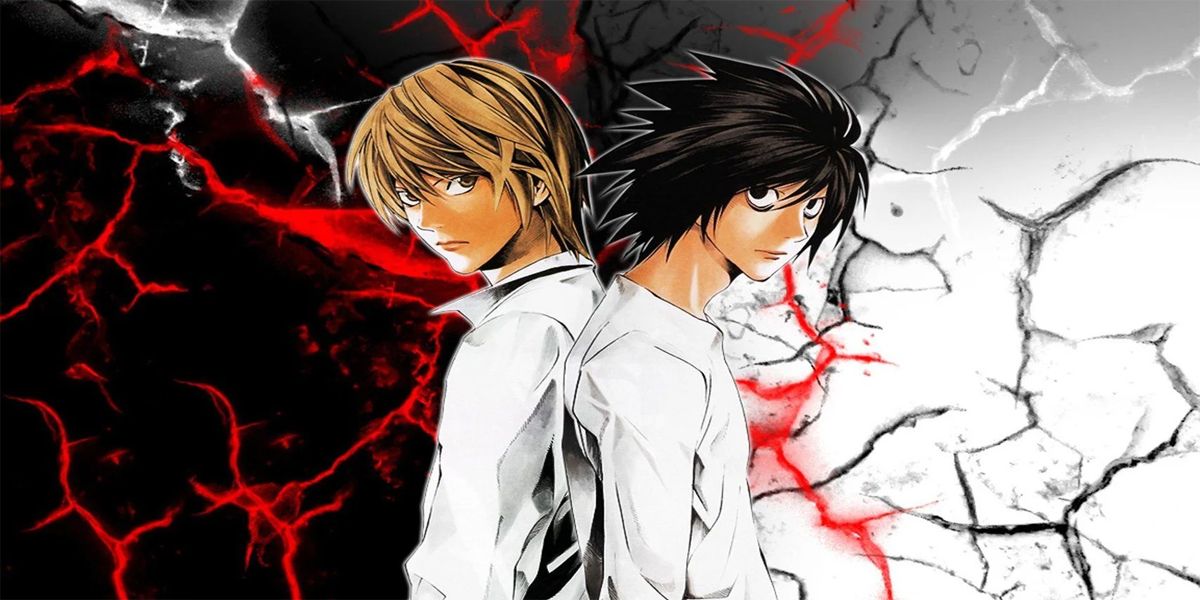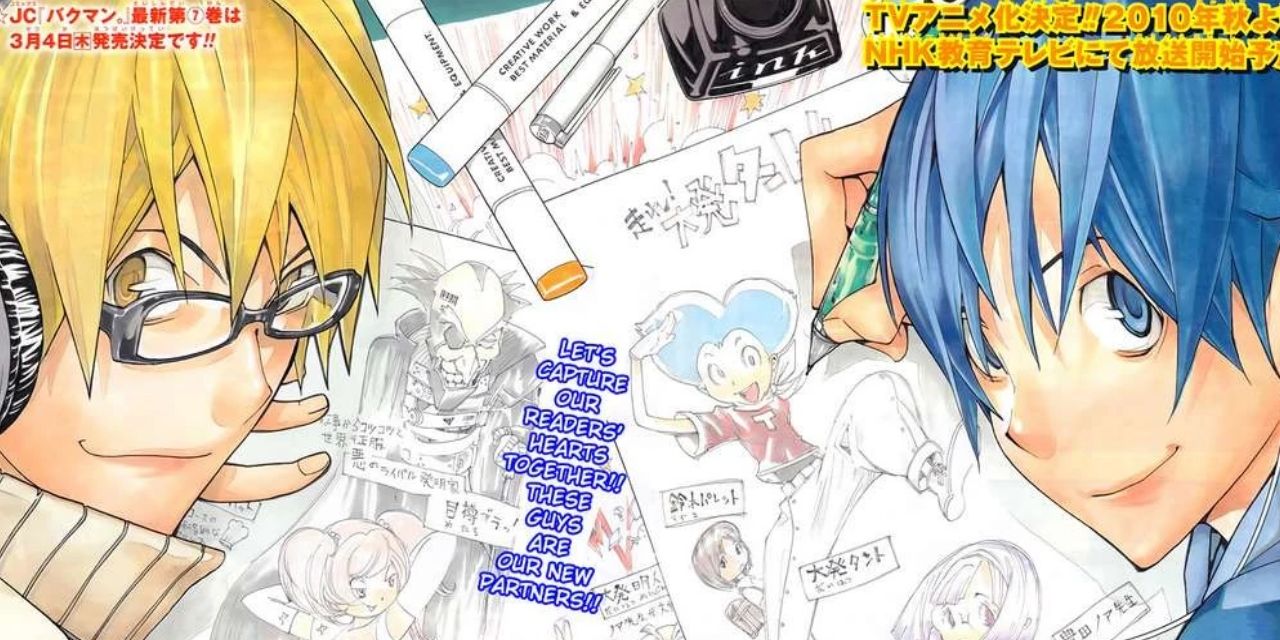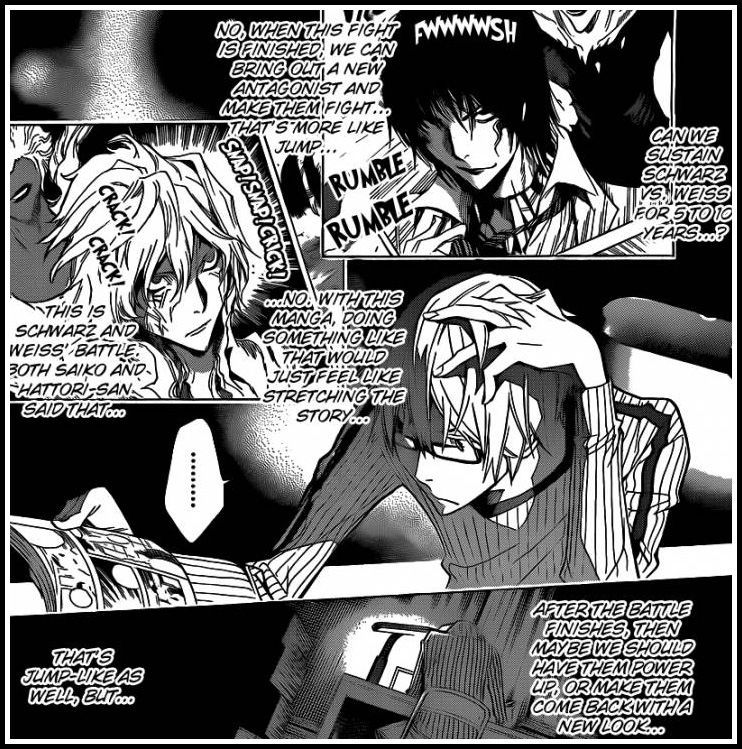WARNING: The following contains minor spoilers for Bakuman, available in English from Viz Media.
Death Note is among the most popular and exciting series of the 2000s. From 2003 to 2007, it ran for 108 chapters in the immensely popular Weekly Shonen Jump magazine, with a similarly popular anime adaptation produced by Studio Madhouse for a total of 37 episodes. And, while many may remember the manga and anime very fondly, Death Note is also famous for one key blunder that left its second half feeling inferior to its first.
The death of L, Death Note's second-most important character, in the midpoint of the manga, blew the minds of fans. But, the following chapters slowly began to slowly lose the spark that the earlier chapters had. The new characters introduced to replace L, Near and Mello, were never quite as exciting as him. Likewise, the anime post-Episode 25 was not met with the same acclaim as the episodes prior. Death Note was an anime built around the ideological conflict between its two biggest characters, Light and L. One could even argue that L was as much the main character as Light, and not a supporting role that could be easily killed off. Without the ideological opposition of L, the latter half of Death Note transformed from the mental chess game of the earlier parts into an anime solely about Light.
The next manga the creators of Death Note, Tsugumi Ohba and Takeshi Obata, worked on was Bakuman, which follows a duo of mangaka, Mashiro and Takagi, who join Jump to create their own series under the pen name Ashirogi Muto. The manga drew inspiration from Ohba and Obata's own experience working at Jump, but the premise isn't the only similarity to their real life.
In the later parts of Bakuman, Ashirogi Muto decide to create a manga "suspiciously" similar to Death Note called "Reversi," about a Japanese student possessed with the power of a demon named Schwarz. Schwarz uses his powers on society for evil until a demon of light, Weiss, shows up to oppose him. The ideological battle between the two characters mirrors that of Light and L. Even Schwarz's love interest is similar to Death Note's Misa, both being used like tools by the protagonist, who's more anti-heroic than the traditional shonen protagonist.
After "Reversi" became popular, Bakuman's fictional version of Jump asks Ashirogi Muto to extend the series beyond what they were initially planning. In the following chapters, the duo puzzles over what direction to take their manga next, struggling with how to move forward authentically. At first they consider replacing Weiss - similar to how Ohba and Obata replaced L - with a new villain for a brand new arc. However, their editor tells them that "Reversi" wouldn't be what it is without Schwarz vs. Weiss. Then, the duo consider reviving the main characters with new powers and transformations after their battle to keep the conflict fresh for a longer run. But, eventually, they come to the conclusion that the best decision is to go with their initial plan and end the series at its natural conclusion. "Reversi" finally ended with the last battle of Schwarz and Weiss, with both characters dying together in the last chapter.
Bakuman is a work of fiction and it in no way confirmed to be the real opinions of creators Ohba and Obata. However, the difference between the endings of Death Note and Bakuman's "Reversi" seem to suggest that the authors themselves might have preferred a different ending for their first series. It isn't uncommon for fans to be dissatisfied with the ending of manga, but it's a different thing altogether if it's the mangaka themselves. The final choice shown in Bakuman may be a hint from Ohba and Obata as to how they would've written Death Note differently if they had the chance to rewind time. But, whether or not the authors actually regret killing L early and delaying Death Note's end, it is undeniable that the work they created left its mark on the shonen genre. But one has to wonder how different Death Note would've been if L had lived on.



